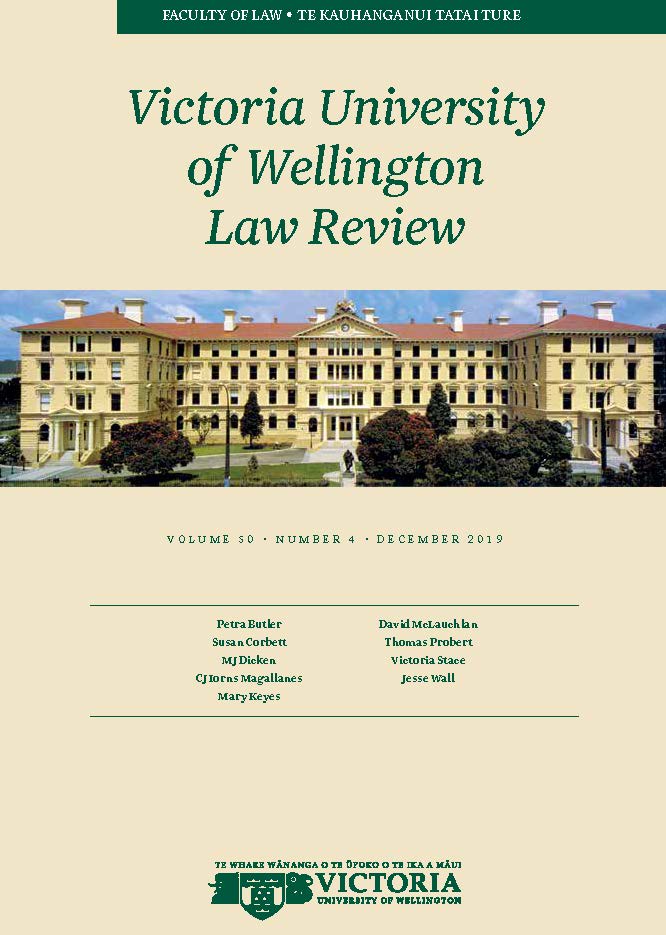Archives, Museums and Copyright Law: Reconciling the Traditional with Contemporary Practices
DOI:
https://doi.org/10.26686/vuwlr.v50i4.6303Abstract
By preserving and providing accessibility to cultural heritage, archives and museums have a crucial role in civil society. "Culture" is not a static concept; ideally, the practices of contemporary archives and museums should adapt to meet the changed expectations and cultural values of society. However, the limited permitted exceptions for archives in the Copyright Act 1994 are an obstacle to archives and museums attaining this goal. For example, the provisions are drafted from a traditional, analogue perspective, albeit with more recent minor changes in an attempt to acknowledge digital technologies. Furthermore, the permitted exceptions are confined to not-for-profit and state archives– a somewhat contentious limit in the 21st century when the Internet promises the means for cultural democracy. Museums are not mentioned at all. In addition, there is no legislative process permitting uses of orphan copyright works. This article explains how the permitted exceptions for archives could be amended in the upcoming review of the Copyright Act to better acknowledge and support cultural heritage institutions. It examines recent amendments in the Copyright, Designs and Patents Act 1988 (UK) and suggests that while some of these amendments would be useful for New Zealand to emulate, additional changes should also be considered.
Downloads
Downloads
Published
How to Cite
Issue
Section
License
Authors retain copyright in their work published in the Victoria University of Wellington Law Review.


